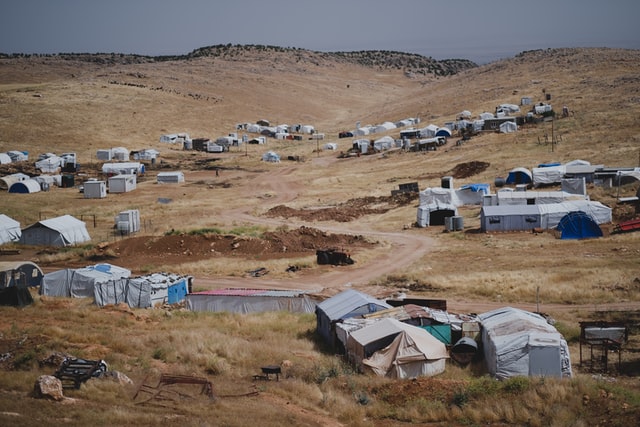The ongoing refugee crisis in Europe began in late February 2022 after Russia invaded Ukraine. Since that time, over 5 million people have fled the country and another 7.1 million have been displaced inside Ukraine. Fuel, cash, and medical supplies are running out. The resentment among Ukraine war refugees is growing. It is important for asylum seekers to justify why they fear returning to their countries of origin or permanent residence. The EU has been slow to respond to the situation.
EU Funding for Housing Ukraine Refugees
The UK has provided visas for around 28,500 Ukrainian refugees under the EU’s “Homes for Ukraine” scheme, though only 10 have come to the UK so far. Under the “Homes for Ukraine” scheme, individuals and families can house a Ukrainian refugee who has no family in the country. The scheme launched on 14 March, with more than 100,000 people signing up on the first day. Those who sign up must provide rent-free living space in their home for six months, without any other living expenses.
The first waves of Ukrainian refugees arrived in Poland and other European countries relatively well-off, with many meeting friends and relatives on the border. Most, however, have no contacts in the EU, and need immediate temporary housing and healthcare services. The vast majority of refugee children and young women need urgent housing and schooling. Ultimately, this is a massive challenge for neighbouring countries. And the EU must do more than just provide temporary housing and care for these people – it needs to address the root causes of the crisis.
Resentment of Ukraine Refugees Grows
The plight of Ukrainian refugees is becoming more acute as the war in Ukraine drags on. Many refugees in the region are hungry and without the basic human rights we are entitled to as citizens. However, if we are to prevent resentment of the refugees, we must provide assistance to countries hosting them. We should support these countries so that the pressure on Ukraine is reduced. But we need to be vigilant about the situation in the country where we are living.
The United States has an obligation to assist Ukrainian refugees, and that responsibility starts with its citizens. Congress has the power to provide aid, but the international community needs to begin talking about resettlement and assistance programs. A community of Ukrainians in Traverse City field calls from Ukrainian refugees who are fleeing their country. Pastor Vitaliy Pavlishin, of the Slavic Evangelical Church of Traverse City, is one such organization.
Fuel, Cash, and Medical Supplies are Dwindling in Ukraine
U.S.-funded humanitarian organizations are operating mobile medical teams in Ukraine to provide vital health care, including HIV/AIDS and sexual and reproductive health assistance. They are also providing safe drinking water and sanitation infrastructure, medical supplies, hygiene kits, and blankets to displaced populations living in collective shelters. These teams also provide psychological support to the refugees and ensure that they receive medical attention and essential household items.
UN aid agencies have warned that fuel, cash, and medical supplies are running out for displaced Ukrainians. Many of the people who have fled the war are elderly, disabled, or in poor health. The UN has estimated that up to 10 million people have been forced to flee the country. Fuel, cash, and medical supplies are rapidly running out. The resulting crisis has put an enormous strain on the humanitarian aid industry and the lives of Ukrainian citizens.
Asylum Seekers Must Explain Why They Fear to Return to The Country of Origin or The Country of Permanent Residence
People leave their homes for many reasons, from seeking education or a new job to fleeing persecution or armed conflict. In some cases, they may have suffered persecution because of their ethnicity, sexual orientation, or political opinion. The legal definition of a refugee does not accurately reflect who a person is. But if the asylum applicant can explain why he or she fears returning to the country of origin or the country of permanent residence, they can be granted asylum.
Asylum is a legal right and a duty. The states must accept asylum claims to protect those in need. Priority of asylum claims is based on the urgency of the need for protection. The more serious the need, the stronger the asylum claim. The purpose of asylum is to protect people from danger and persecution. The asylum system was created to help people in peril.







